That sinking feeling when you find an important file missing is something may of us know too well. “Is it possible using System Restore to recover a file I accidentally deleted?” This is a pretty common question raised by Windows users.
You probably know that Windows System Restore is a built-in tool concerning data recovery, but will it recover your deleted files? If yes, how does it work? If no, how to recover deleted files on PC? Read this article to get complete answers, where all Windows OS versions (11/10/8/7) are covered.
The answer is negative. It’s impossible to recover deleted files using Windows System Restore.
System Restore is designed to restore system files, registry settings and other system configurations to a previous point in time. It can be used to undo unwanted system changes and fix unexpected system issues. Therefore, System Restore is more focused on maintaining your computer’s stability and functionality. It won’t affect any personal data created by users, such as documents, pictures, videos, applications, music, etc.
However, this doesn’t mean that System Restore is totally useless for personal file restoration on Windows. By this feature, your abnormal computer can be reverted back to an earlier functional state, thus increasing the chance of a successful recovery process.
Now that System Restore cannot recover deleted files, how can we restore files in Windows 11/10/8/7? If your personal files are removed recently, go to check Recycle Bin on your desktop. Not available there? They are likely to have been permanently deleted, but still remaining on local hard disk of your PC before overwritten by newly added files. So you’d better not write any new data to the disk, and act quickly to pick out a suitable recovery solution from the following part.
To deal with the permanent deletion of files with least amount of time and effort, we should look out for professional-grade data recovery programs. With so many recovery tools out there, which is the good one that you can trust most? We are here to recommend you the second-to-none choice only --- Cisdem Data Recovery for Windows.
Cisdem data recovery expert has uneaqualed expertise to salvage 1000+ types of files from Windows devices, USB flash drive, SD card, HDD, SSD, NAS, Linux, etc. Thanks to its advanced scanning engine, easy-to-use UI, high recovery rate, users will need little data recovery knowledge to handle any tricky data loss scenarios without effort.
More reasons to pick Cisdem Data Recovery:
 Free Download Windows 11/10/8/7
Free Download Windows 11/10/8/7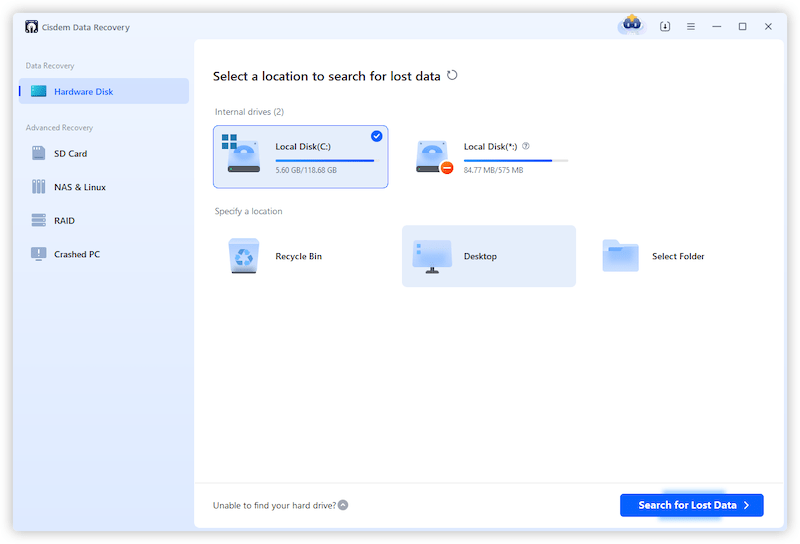
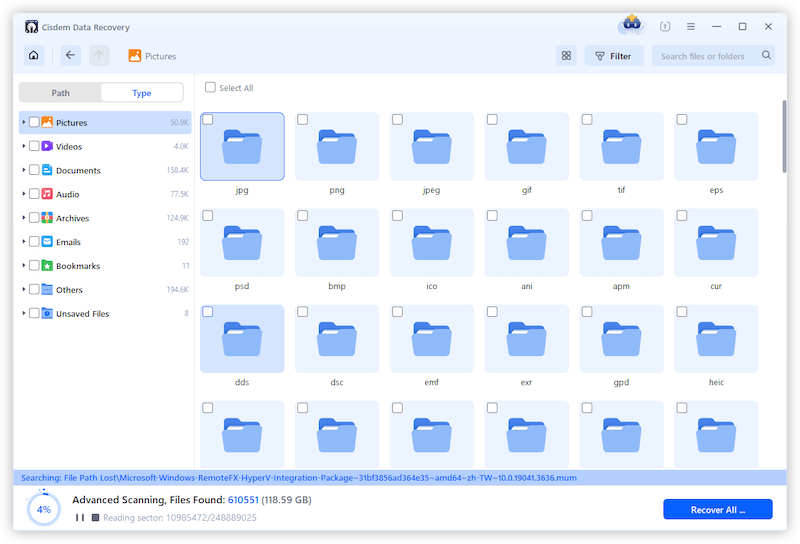

System Restore won’t recover deleted files? Another method is using Windows File Recovery. Microsoft offers a Windows File Recovery tool that works on a command-line interface, which can be adopted to recover accidentally deleted files from various storage devices without needing 3-rd party data recovery solutions. It can restore all data types and support NTFS, FAT, exFAT, and ReFS file systems. Here’s the tutorial to recover deleted files with WFR.

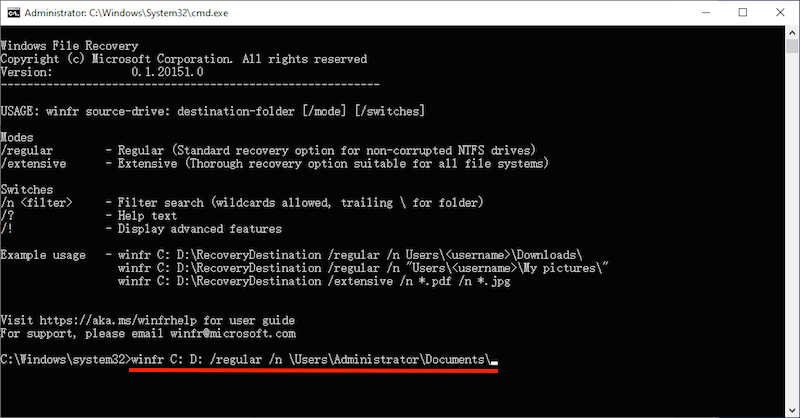
Also known as Volume Snapshot Service (VSS), Shadow Copy can create backup copies or snapshots of computer files or volumes even when they are in use. Windows has a feature called Previous Versions allowing us to restore earlier copies of a particular file or folder from Shadow Copy snapshots. Then recovering deleted files in Shadow Copy becomes possible.
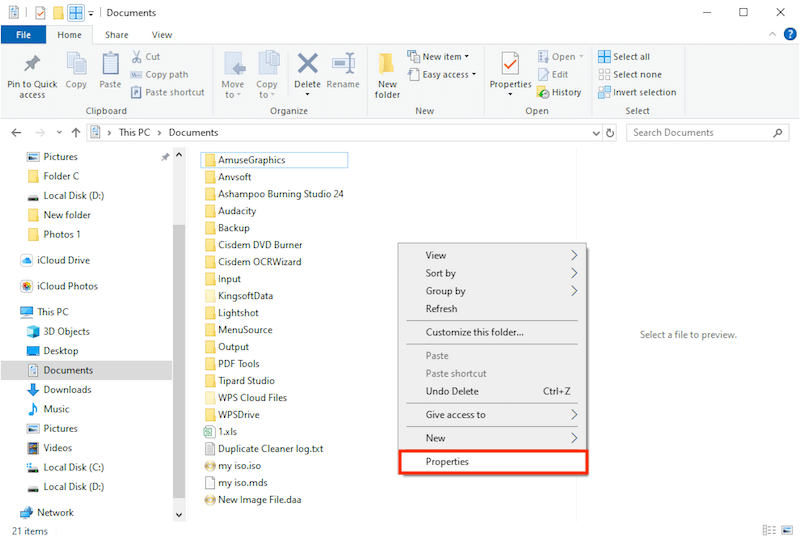
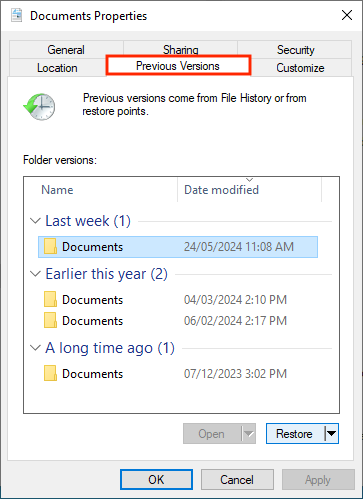
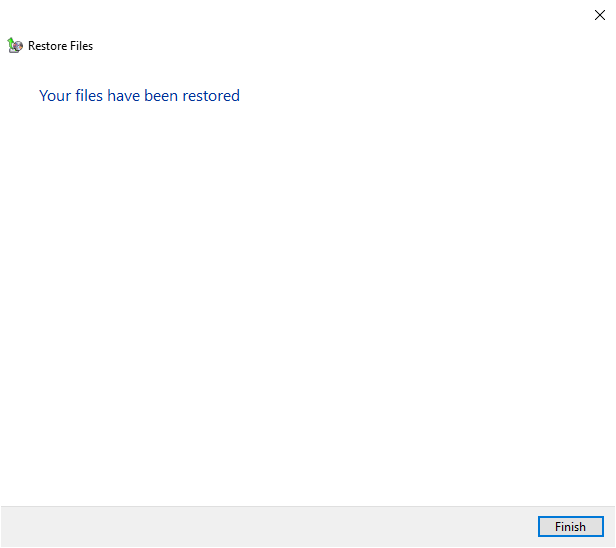
Without System Restore, the last way to rescue deleted files on Windows 11/10 should be turning to cloud backups. Almost all Windows users have set up OneDrive as their go-to backup solution for personal data. By doing so, Windows takes a backup of specific files from time to time and allows you to restore files when deleted or lost. If you did have OneDrive setup, you can efficiently recover files using it.
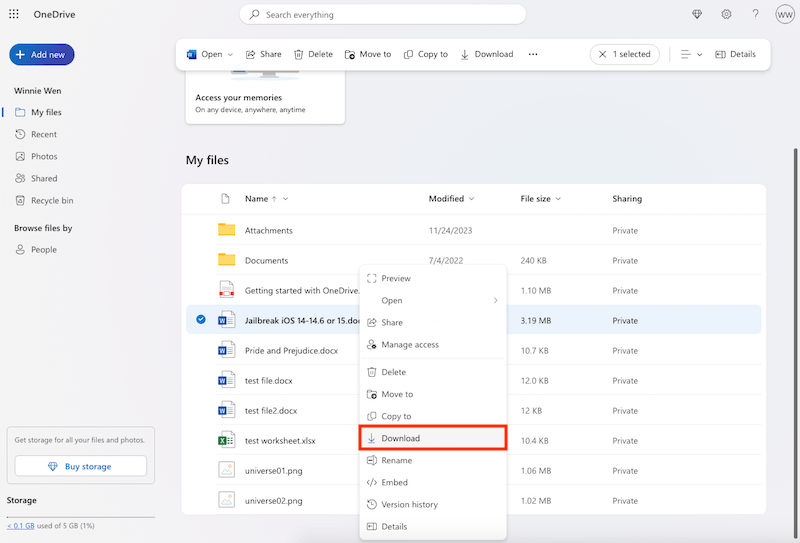
Does System Restore delete files on Windows 10/11? Actually, this is a controversial issue.
According to official Microsoft as described in the first part, System Restore typically rolls back the computer’s system settings and configurations to a previous state. It will leave any of your documents, pictures, or other personal data intact. While it will remove apps, drivers and updates installed after the restore point is made.
However, in many real cases, victims give the feedback that System Restore may overwrite some of your personal folders and files, making them unrecoverable forever, due to the instability of Restore Point.
That said, there is still a potential to lose data during a System Restore. It’s not suggested to try System Restore unless your PC is under a really bad condition. If it’s necessary to carry out the restore process, back up everything you want to keep in advance.
Windows System Restore could be a useful function helping to fix problems that might be making your computer run slowly or stop responding. Since it cannot recover deleted files, we have to use other means of recovery if needing to get files back on Windows, like Cisdem Data Recovery. After a free trial, this program will be proven to be the most trustworthy tool on Windows data recovery.

Zoey shows a great interest in what she does. Although not long with Cisdem, she has possessed a professional understanding of data recovery.

